- Home
- James Phelan
The Hunted Page 5
The Hunted Read online
Page 5
•
“That’s it, end of that lane,” Hutchinson said.
McCorkell drove the Ford along the unpaved road and took the corner at speed. The white farmhouse grew bigger. They drove by a body on the ground. McCorkell pulled to a hard stop.
McCorkell and Hutchinson made their way toward Walker and Somerville, who stood together, their body language tense as a new sound emerged. A helicopter, approaching from the northwest in a big sweeping arc. Walker identified it as an AgustaWestland. As it made its way closer, he saw the charcoal paint scheme, the fine white MoD stenciling on the tail.
“Who’s that?” Somerville said.
“MI5,” McCorkell replied. “I’m surprised we beat them.”
“What?” Somerville said. She looked to Walker.
He watched as the helo came in to hover over the clearing and six guys in paramilitary outfits fast-roped out the open side doors. They hit the ground running, Heckler & Koch UMPs raised, shouting for Walker, Somerville, McCorkell and Hutchinson to drop to their knees.
“Son of a bitch . . .” Walker said, looking west, the Bell Huey no longer visible in the afternoon sky.
12
Walker stopped the car to look at the clock tower in Hereford. It was inscribed with the names of dead SAS officers; many had been added since he’d last seen it. He stood, silent, reading the names, then closed his eyes. The events of the previous day ran through his mind. His father’s words and actions. McCorkell’s pulling in of favors to have him and Somerville freed and cleared. The manhunt for his father underway. He opened his eyes. A new day to battle, to reconcile.
“Is this place how you remember it?” Somerville asked.
Walker shook his head and looked around. “Ever notice that progress looks more like destruction?”
“Yeah . . . Chaos leads to order. That’s what your father said, right?”
“Something like that.”
“It sounds like some new-world-order kind of mumbo jumbo.”
“Yeah.”
They stood in silence, each lost in their own thoughts. McCorkell and Hutchinson were back at the SAS headquarters, squaring away the stolen gear recovered from the farmhouse, liaising with the MI5 team, working with the DoD to track the unmarked helicopter. Walker knew it would be up to his father whether he’d be found again.
“Walker,” Somerville said, “I don’t know who I thought you were, but right now I don’t even think you know who you are—or who you were.”
“Being dead changes a guy.”
“Talking about you or your father?”
“Both.”
“Change as in progress?”
“Progress? Destruction.”
“Right. And your father? How has he changed?”
“Same as me.”
“As in?”
Walker shrugged. It was easier seen and felt than explained. Doris got that. Walker had seen it, when something had resolved in her to help him. He’d recognized the same thing in his father. Resolution. Decisions made a long time ago. Would he ever understand why—why his father had left the family, faked his own death, had foreknowledge of terrorist attacks and not prevented them? Maybe. Maybe not.
“You’re not your father.”
“I know.”
“You won’t become him.”
“Probably not.”
“Come on. Let’s go,” Somerville said eventually. “We’ve got a flight to make.”
Walker remained silent, unmoving. At the clock tower time stood still. No progress, no regression. A moment in time, when all he had were his thoughts and a world to figure out.
Somerville said, “You’re coming back stateside, right?”
Walker looked up and down the street. “Maybe.”
“Fuck you maybe.” Somerville pushed him in the chest. He looked at her. “We need you working on this. You’re a part of it, as much as your father. You can stop this, if you just come back, if you get to work.”
“Look—”
“No. Don’t say another fucking word.” Somerville looked away, then back at him as she took the car keys from his hand. “You know what? Do what you want. Go, disappear for another year. Leave these terrorists up to us. Leave Eve to remain in the dark, alone. Leave the rest of the SEALs to whatever fate decides. Leave it all and walk away. It’s easier, right? To just keep looking back. Hanging with the dead. Going nowhere.”
Somerville left without a backward glance.
Walker looked at the shrine. The names of dead men, inscribed in stone. Not a fake among them. He made his decision. Resolved it. A long time ago.
He could never let go. Never stand by, when he knew he could make a difference.
Walker followed Somerville.
13
Walker sat at the bar, ordered a beer, and waited.
The beer was fine. American, cold. The glasses were clean, as though they had only ever served American beer, cold. Most of the men were drinking whisky, or a clear liquor that looked like some kind of local brew not far beyond bathtub moonshine. The prohibition hadn’t much touched these parts, but they’d made their own supply regardless, before and after; that’s what these people were good at: they got by, on their own, no outside help needed or wanted.
He had spent almost a week asking around, while McCorkell and his team were working from desks, checking phone records and databases. All of them looking for a SEAL who didn’t want to be found—the one unaccounted-for member from the Abbottabad raid that had killed bin Laden. Which was why Walker elected to be here, on the ground, searching for this SEAL. Needle in a haystack? He had fifty bucks against Somerville and Hutchinson that he’d beat them to finding the guy.
Thing was, how do you find a highly trained operator who doesn’t want to be found? When the hunter becomes the hunted, the hunter turns pro. And this was the SEALs’ backyard—if he didn’t want to be found, he was going to stay that way.
And that reality was starting to wear away at Walker.
The bar was in a squat building sitting in the middle of a paved car park on the highway that cut through town. It was confederate gray on the outside, union blue on the inside. The patrons were old and young, nothing in-between. Thirty-four people. The women drank beer. None sat alone; each with a man. Of the twenty-two men, six looked like they would be more than capable in a bar fight—though, Walker thought, who knew what a capable man looked like in these parts? Hatred ran deep here, wariness was a second language, and near-on everyone was armed.
It felt like a closed community because it was, as closed as a place could be without barbed-wire-topped walls. Those compounds in the Middle East that protected Westerners and local big shots had nothing on these people. The folk here were kin. They didn’t need walls to keep unwanted people out; didn’t need locks on their doors, nor their cars.
The fact was, Walker knew, if you messed with someone here, they, and their family—considerable in size and spread wide in geography—would see to it that before you managed to reach a county or state line, you’d never trouble anyone again.
Another thing he noticed was that the outside world could end and little here would change.
Self-sufficient didn’t begin to describe these folk.
Walker settled in, watching and listening. The hubbub was inconsequential but he listened hard. Every time he sipped, he watched the scene around him in the mirror behind the bar. When he wasn’t looking up, he was looking at his beer bottle, eyes down, like they did in these parts.
The same went for interference, Walker knew. Meddling. Messing. The town welcome signs might as well have read “Y’all not welcome. Turn around.”
The empty streets outside were louder than this bar. No music played, the conversations were hushed, the occasional laugh or snort was brief and muffled, the loudest noise being the bang of the bathroom door—flimsy plywood into a battered and warped timber frame.
Walker finished his drink and glanced up and down the bar, a side-to-side sweep. The
mirror above the bar had a patina of rust eating at it from the aeons of damp that clung in the valleys here until noon. Everyone wore denim of some sort, and a mix of T-shirts and cotton checked flannels, leather jackets and parkas. Heavier coats hung on the wall near the door.
Not even winter and the cold was cutting and dank.
Walker liked the place.
“Another beer,” Walker said, sliding his empty bottle forward. The guy behind the bar popped another, handed it over and took the money from Walker’s previous change of a twenty. All in silence. He returned to the end of the bar, to Walker’s left, where he spoke with three young men.
There were two empty bar stools and then a couple of old guys between Walker and the three boys. The latter were young, early twenties, but Walker counted them among the six capable guys in the room, along with another wiry young guy sitting with a girl at a table directly behind him, and a couple of older men sitting about fifteen feet away by a stack of firewood. Immediately to Walker’s right at the bar was a couple in their late fifties.
They were why he’d chosen this spot to sit, after standing at the bar and ordering a beer from a bartender who Walker had quickly realized would not be forthcoming with information. The couple next to him had just finished their dinner; roast beef, boiled vegetables, gravy, biscuit. The woman, on the stool beside Walker’s, was drinking a glass of light red wine. Her husband was a local; her clothes and make-up and jewelry told Walker she was either a transplant or was trying her best to look like one. Maybe that meant she’d be friendlier, more forthcoming.
“Excuse me,” Walker said to her, his tone that of one outsider to another.
Nothing. Her back was half-turned to him, her bar stool pointed thirty degrees toward her husband.
Walker leaned back a little, watching the husband drain the last of the clear stuff from a lowball, and forced his way into the older man’s eye-line.
“Hey,” Walker said, friendly. “My name’s Jed. Jed Walker. I’m just passing through.”
The husband almost nodded. He looked over Walker’s shoulder, then back to the bar in front, not making eye contact again.
“I’m just wondering,” Walker continued, “if you’ve heard of a friend of mine? Lives around here. I’m trying to find him. We served together in Afghanistan. Charles Murphy? Ex-Navy. Good guy.”
The guy didn’t look at Walker, but he shook his head.
“Ah, damn,” Walker said, looking at the bar and seeing the husband’s eyes watching him in the mirror. “We served together, see. Just trying to reconnect.”
Walker sold the lie convincingly, but the husband wasn’t buying into the conversation. His mouth was shut tight. The wife, however, had turned front on, and she was now eyeing Walker in the faded and rusted old mirror above the liquor bottles.
Neither of them said anything, but Walker could tell that Charles Murphy was a name they’d heard. So, they either knew him or knew of him. Sure, there’d be a lot of Murphys around here, but this one they knew of.
“You see,” Walker said, straight at the mirror. “I owe him. And I’ve been lookin’ for him for four days already, in every little speck of a town around here, every bar and diner.”
“Maybe he doesn’t live around here,” the wife said. Her accent was local. Her lips pursed when she finished speaking. Her lipstick was an orange shade of red. She was older than Walker first thought, or maybe it was just this climate, sucking the life out of her bones, forcing her face into a squint of cracks and creases.
“You got the wrong place, wrong name, maybe both,” she said, and the husband looked down to stare at his plate. “No one by Charles Murphy around here. You best move on, go lookin’ someplace else.”
Walker noted the tone. It wasn’t a suggestion to leave. And yet, it was an invitation. He was getting nowhere talking like this. But the fact that she was closing the door to this town on him? Well, that suggested he’d found the right place. It was in her eyes—she knew Murphy. And she was smart enough to know that Walker knew that she knew. The woman looked all the world like she was up for a challenge by some stranger pressing her for answers, and knew that she had all the advantages and then some.
Walker liked a challenge. And the realization that he was closer to Murphy just gave him the right amount of adrenaline to pursue the matter. “It’s the right name, ma’am,” he said to her. “I’d never forget it. He saved my life in Afghanistan. You don’t forget a man’s name when he does something like that. You don’t forget where he’s from.”
Her eyes remained fixed on his, in the mirror’s reflection. “You were in the Navy?”
“Air Force,” Walker replied, telling the truth.
She seemed a little disappointed.
“Special Operations, like Murphy,” he added, sipping his beer. “Side-by-side stuff, in the trenches together more than once.”
“They call it Special Forces, don’t they?”
“Only the Army.”
Her eye twitched. She was someone not used to being corrected, let alone outright challenged.
“Trenches . . . I dunno,” she said, as though the term “trenches” was more silly than outdated. “Look, Walker? There’s no Murphy here. Certainly no Charles Murphy. Maybe your memory’s at fault.” She turned to look directly at him. “Too many concussions in ’em trenches?”
Her eyes were as gray as the outside of the bar. Her face was angular and much harder than the blurred and patinaed mirror had suggested. She had a high hairline and pale wrinkled skin. There was a line around her face where the make-up stopped, paler than pale.
“Maybe you misheard me,” Walker said, holding her gaze, sensing something as battle-hardened as many Afghani women of her age he had encountered. “I need to find Murphy, because I owe him. I owe him, and right now he needs my help. So, I’m here to pay that debt, see?”
The woman held Walker’s eye for another two seconds, then looked over his shoulder and gave the slightest nod. She then lifted her glass for a moment, placed it back down. By the time the barkeep had refilled it from a bottle with a cork, Walker sensed movement behind him.
Walker turned around on his seat, watching the mirror as he did so.
The three guys from the end of the bar.
They moved before he could adequately react. He could have enacted several options, most of them lethal, but he let them win the first round while he evaluated and reassessed based on their actions.
Two of the guys grabbed Walker by the arms, pinning him where he sat, his back now to the bar.
The third man stood before him, arms hanging by his side, fists clenched.
Walker smelled alcohol coming from the three of them. More pros than cons, that fact. They’d have slower reaction times. Be less precise in their movements. Bleed more.
“I’m guessing the three of you are brothers,” Walker said, and the guy out front nodded with a grin. “And I’m assuming your parents were cousins. No, wait—brother and sister?”
The guys who pinned Walker had grips that made forged bench vices seem like paperclips.
“The three of you married to each other?” Walker said. “They allow that in these parts, right?”
Someone in the bar sniggered. Someone else shushed that person quick smart.
The man out front flushed red, wound up for his punch, said, “Welcome to the Ozarks, bitch.”
14
“Rachel Levine,” she said into her phone, seeing that the call was coming from NCIS headquarters in Quantico, Virginia.
“We have a lead on your Chief Petty Officer Charles Murphy,” Agent Brewster said to her. From the hum in the background Levine guessed he was in The Pen, a large open-plan room full of hot desks to which agents were delegated on a situational-needs basis. Sometimes that room was full, three shifts a day, around the clock. Sometimes it didn’t have half the staff for half the time. Today it was full, and it was set to remain that way for the foreseeable future.
“Go.” She wrote down the deta
ils and hung up before turning to her partner, Special Agent Tom Woods. “We’re rolling.”
“We just ordered.” He looked at the barbecue, the ribs slow-cooking, steaks on a grill, a rotisserie of chickens being basted. It was someone’s front yard, in Memphis, Tennessee, and the smoke pouring from the three purpose-built cooking rigs smelled of myriad melting fats and charcoaled chicory. A result of the GFC, people like these had been booted out of places they used to rent as diners and started plying their trade from their front yards instead. Woods loved them. Levine too. But this was her case, and it was getting further away from them, and she knew that time was not on their side.
“Yeah, well, take whatever’s ready in the car, Tom,” Levine said, headed for their government-issue Taurus, a dark metallic gray with a V6 under the hood and more plastic than the Barbie Dream House her little sister used to have. Levine sat behind the wheel and plotted the course in the sat-nav, ready to roll by the time Woods climbed into the car with two heavy foil bags, a handful of napkins and bottles of iced tea.
He asked, “Big drive?”
“We’ll be there by nightfall.”
“Nice. The road trip continues.”
Levine looked sideways at him. He was genuinely happy to be out of the office and on the road. He didn’t look Navy, though she supposed she didn’t either. His hair was long, well over his collar. Hers was cropped short and tight, but there was the hint of a tattoo at the base of her neck that showed when she wasn’t wearing a collared shirt.
“Where we headed?” he asked, buckling up as she took off.
“Calico Rock, Arkansas.”
“Ah, Ozarks,” Woods said, starting in on his smoked-brisket sub. “My kinda people.”
•
Walker ducked, the big guy’s first punch flying high and wide.
The follow-up left landed in Walker’s guts, then was followed by an elbow to the back of the ribs that knocked the air out of him.

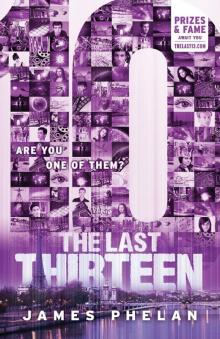 10
10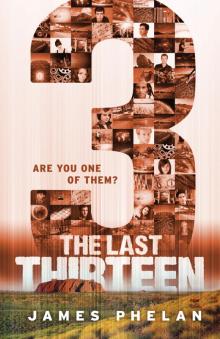 3
3 Survivor
Survivor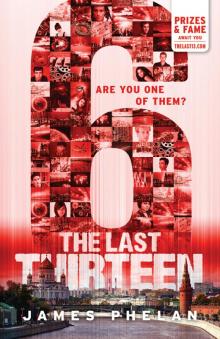 6
6 The Hunted
The Hunted Quarantine
Quarantine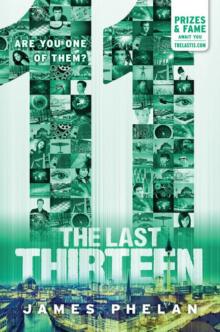 11
11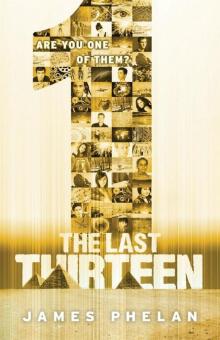 The Last Thirteen - 1
The Last Thirteen - 1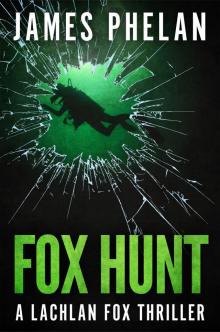 Fox Hunt
Fox Hunt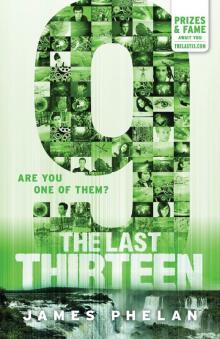 9
9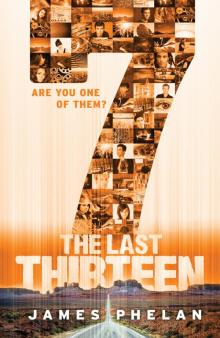 7
7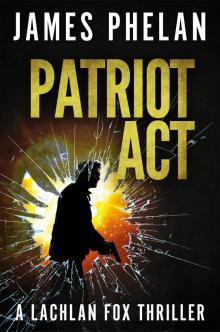 Patriot Act
Patriot Act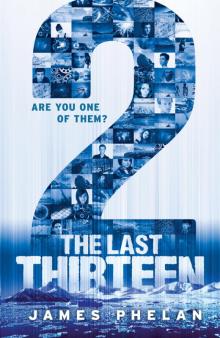 2
2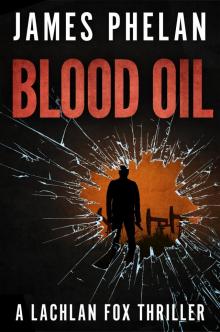 Blood Oil
Blood Oil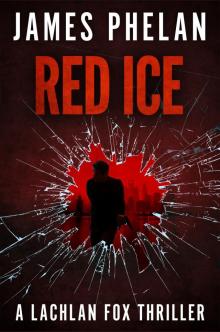 Red Ice
Red Ice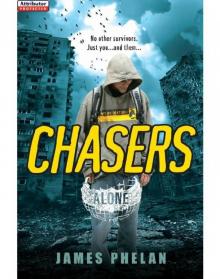 Chasers
Chasers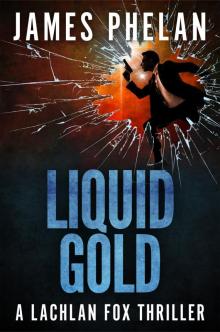 Liquid Gold
Liquid Gold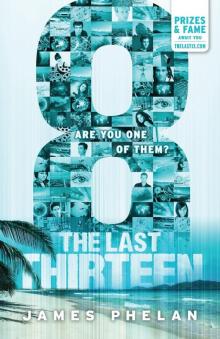 8
8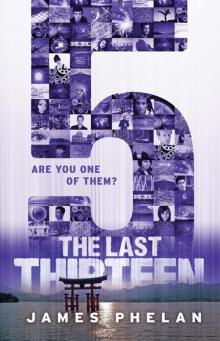 5
5 The Spy
The Spy Kill Switch
Kill Switch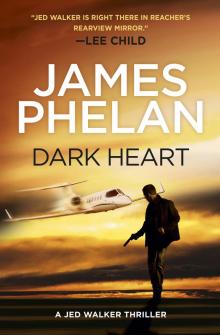 Dark Heart
Dark Heart